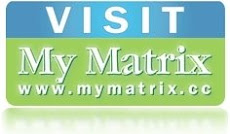If you haven't started your Roth IRA, you should seriously consider opening an account ASAP! If you have a Roth IRA and haven't funded it yet for 2007, you still have time. Here's a good article on why you should have a Roth IRA.
The timing couldn't be better. For one, you can still fund your Roth for 2007 up until April 17th, your tax return deadline and then turn around and fund your 2008 contribution right afterwards in one lump sum or incrementally throughout the year.
For 2007, your max. contribution is $4,000 ($5,000 over age 50) and for 2008 the max. is $5,000 ($6,000 over age 50). If you're married, your spouse can also fund a Roth at the same amounts, even if that spouse doesn't have earned income, as long as you file a joint return.
If you're wondering where the money to fund your Roth will come from, consider investing your Tax rebate. If you're married and have 2 children, you could receive up to $1,800 depending on your Adjusted Gross Income. What's the value of that $1,800 over 20, 30, 40 years or more? Use this calculator to see (use 0% for the Federal & State taxes).
Not all Roth IRA's are created equal. The primary feature of a Roth IRA is that you can invest after tax dollars to grow tax free and to make withdrawals tax free. Before you set up an account, make sure you understand the internal fees for that Roth IRA. Some mutual funds inside your Roth have a lot of internal costs that will eat away at your rate of return. Warren Buffet recommends index funds for the non professional investor. Check with a qualified fee only advisor for the best account options.
If you have a son or daughter helping you in your business, help them understand the value of starting a Roth IRA as early as possible and the power of compounding. Their contribution can be equal to their annual earned income amount up to the maximum allowed. Try this on for size:
A 17 year old contributes $1,000 of earned income into their Roth IRA each year for 10 years and stops with a total contribution of $10,000. Assume a 10% rate of return. Here are some estimated results:
- When they are 27, the value of the Roth would be $17,531
- When they are 37, the value of the Roth would be $45,471
- When they are 47, the value of the Roth would be $117,941
- When they are 57, the value of the Roth would be $305,908
- When they are 67, the value of the Roth would be $793,448
- When they are 77, the value of the Roth would be $2,057,999
Remember, this is tax free income (as the law now stands) after 59 1/2. Start young and let the power of compounding work for you.
Self Directed IRA's
On another note, did you know you can buy and sell real estate through a Self Directed IRA? Why would you want to do this, you ask? What if you could pick up an REO property at discount, fix it and flip it or lease it and sell it later at a profit. That profit is not taxable.
This is a very simplified example, so you should definitely talk to someone in the know. A good company to get more information from is The Entrust Group.
If you don't have enough money in your Self Directed IRA to purchase a property alone, consider partnering with one or more trusted associates and buy a property. You know there's a lot of good deals out there.
As always, consult with a qualified CPA and Financial Advisor to determine how to set this all up to best meet your short and long term goals, but start now!
The Cashflow Coach
- Mortgage Lender & Coach
- Providing a full range of mortgage services.
- Subscribe to my blog to stay updated on new articles.
- Now offering a full range of Investment Planning services

